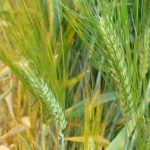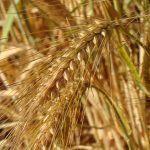Today I was reminded of these three verses:
“Hear the word of the Lord ye children of Israel: for the Lord hath a controversy with the inhabitants of the land, because there is no truth, nor mercy, nor knowledge of God in the land.”
“Hear ye, O mountains, the Lord’s controversy, and ye strong foundations of the earth: for the Lord hath a controversy with his people, and He will plead with Israel. He hath showed thee, O man, what is good; and what doth the Lord require of thee, but to do justly, and to love mercy, and to walk humbly with thy God?”
“And… teach My people the difference between the holy and profane, and cause them to discern between the unclean and the clean. And in controversy,… judge… according to My judgments and… keep My laws and My statutes in all Mine assemblies; and… hallow My Sabbaths.” (Hosea 4:1; Micah 6:2,8; Ezekiel 44:23-24)
When thinking about what information to share with people who want to get started in Bible Study, you ask, What do you share? Where do you start?
I thought these verses summarize what God wants from us: do justly (know My judgments), love mercy (appreciate the work I am doing for you and show that mercy to others), walk humbly (distrust yourself), discern between the clean and unclean. When you come to controversy, judge according to My Judgments. Keep My Laws. Keep My Sabbaths holy.
Having a hunch, I looked up this phrase from Ezekiel 44:24 in the Hebrew: “keep My laws and My statutes in all Mine assemblies; and… hallow My Sabbaths.”
What did I find? The translators made a huge error. It says, shamar (keep, derived from shama, obey with your heart and understanding) My Torah, My statutes (cuqqah), My whole moed, and… hallow My Sabbaths. The phrase “in all” can also be seen as “whole.” And the word, “assemblies” is actually moed, Strong’s H4150.
This verse does not say, “in all Mine assemblies,” but this actually says, “keep… My whole moed.”
This word, moed, means God’s “set appointed meetings.” The moed of God are all of His Feast Days including:
- Seventh-day Sabbath,
- Passover/Unleavened Bread,
- Pentecost,
- Trumpets,
- Atonement,
- Tabernacles and the Last Great Day. (Lev. 23)
According to Exodus 34, these constitute the true worship that God has asked for. We show that we discern between the clean and the unclean when we worship the true God. God’s true days of worship are the foundation of His covenant with us, they are written on the tablets of stone and are called, “The Ten Commandments.”
What a difference the correct translation can make!


